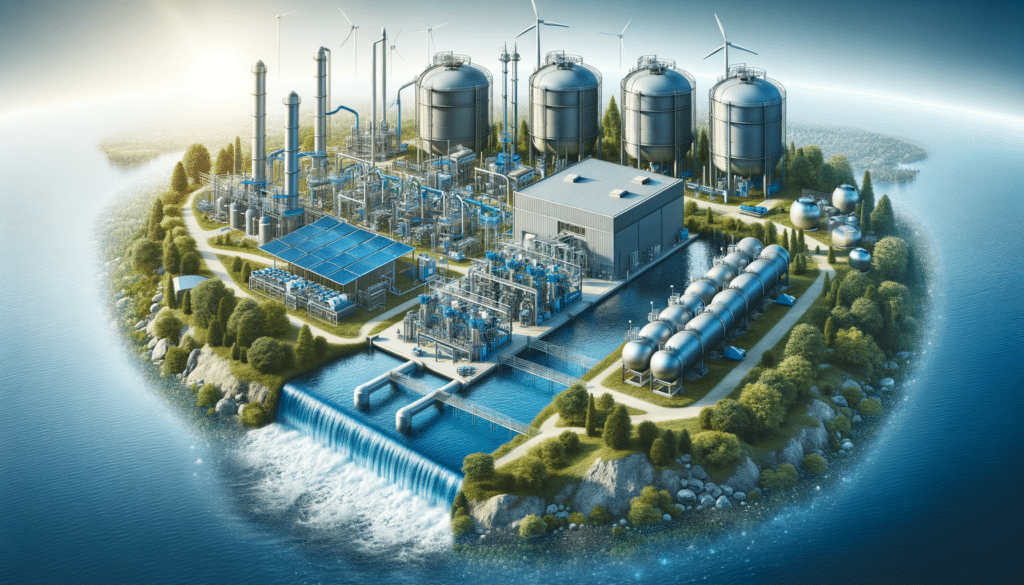Introduction to Water Treatment Companies
Water treatment companies play a crucial role in managing and preserving one of our planet’s most vital resources: water. As the global population continues to grow and industrial activities expand, the demand for clean and safe water has never been higher. These companies are at the forefront of innovation, employing cutting-edge technologies and methods to ensure that water remains a sustainable and accessible resource for all. In this article, we will delve into the various aspects of water treatment companies, exploring their significance, methodologies, and the challenges they face in today’s world.
Technologies and Methods Used in Water Treatment
Water treatment companies utilize a plethora of technologies and methods to purify and recycle water. One of the most common processes is filtration, which involves removing impurities through physical barriers. Advanced filtration systems can effectively eliminate particles, bacteria, and even viruses, ensuring the water is safe for consumption.
Another critical method is chemical treatment, which involves adding substances like chlorine or ozone to disinfect water. These chemicals are highly effective in killing pathogens and neutralizing harmful contaminants. However, the challenge lies in balancing the chemical levels to avoid potential health risks.
Moreover, companies are increasingly adopting biological treatment processes. This method leverages natural microorganisms to break down organic matter, a sustainable approach that minimizes chemical usage. Membrane technology, including reverse osmosis, is also gaining traction for its ability to desalinate and purify water efficiently.
- Filtration: Removes impurities using physical barriers.
- Chemical Treatment: Uses chlorine or ozone for disinfection.
- Biological Treatment: Utilizes microorganisms for organic breakdown.
- Membrane Technology: Effective in desalination and purification.
The Importance of Water Treatment Companies
The significance of water treatment companies cannot be overstated. They are essential for public health, providing clean water to prevent diseases and improve quality of life. In regions where water scarcity is a pressing issue, these companies offer innovative solutions to recycle and reuse water, ensuring a sustainable supply.
Furthermore, water treatment companies contribute to environmental protection by treating wastewater before it is released back into natural bodies of water. This prevents pollution and preserves aquatic ecosystems, maintaining biodiversity and ecological balance.
These companies also play a pivotal role in industrial processes, supplying treated water for manufacturing and energy production. By doing so, they help industries reduce their environmental footprint and comply with regulatory standards.
- Public Health: Provides clean water, preventing diseases.
- Environmental Protection: Treats wastewater, preserving ecosystems.
- Industrial Support: Supplies treated water for various processes.
Challenges Faced by Water Treatment Companies
Despite their importance, water treatment companies face numerous challenges. One of the primary obstacles is the increasing complexity of pollutants. As industries evolve, new contaminants emerge, requiring advanced treatment methods and continuous research and development.
Another challenge is the high operational costs associated with water treatment processes. Energy consumption, maintenance, and the need for skilled personnel contribute to these expenses, making it difficult for companies to remain economically viable while providing affordable services.
Additionally, regulatory compliance poses a significant challenge. Water treatment companies must adhere to stringent standards set by governmental and environmental bodies, which can vary widely across regions. Keeping up with these regulations requires constant vigilance and adaptation.
- Complex Pollutants: New contaminants necessitate advanced methods.
- Operational Costs: High expenses due to energy and maintenance.
- Regulatory Compliance: Adhering to varying standards.
The Future of Water Treatment Companies
The future of water treatment companies looks promising, driven by technological advancements and a growing awareness of water conservation. Companies are investing in research to develop more efficient and sustainable treatment methods, such as nanotechnology and artificial intelligence, to optimize processes and reduce costs.
Moreover, there is a growing emphasis on decentralized water treatment systems, which bring solutions closer to the point of use. This approach not only reduces transportation costs but also allows for tailored solutions that meet specific local needs.
Collaboration between governments, industries, and water treatment companies is also expected to increase, fostering innovation and ensuring that water management strategies are comprehensive and effective. As these trends continue, water treatment companies will remain pivotal in safeguarding our water resources for future generations.
- Technological Advancements: Emphasis on nanotechnology and AI.
- Decentralized Systems: Localized solutions for efficiency.
- Collaborative Efforts: Partnerships to enhance water management.
